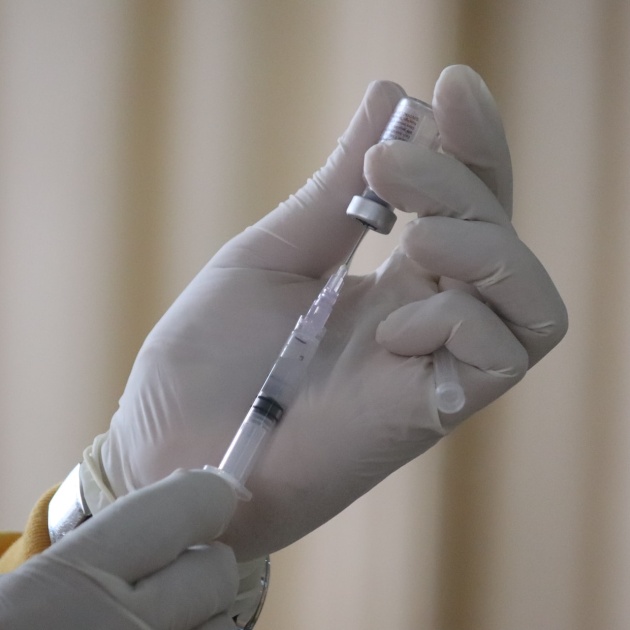Three evangelical leaders in Switzerland speak about the tensions in churches caused by opposing views. A respectful dialogue seems to be the only way to maintain unity.
![The centre of Bern, in Swizterland, in August 2021. / Photo: [link]Sebastian Meier[/link].](https://cms.evangelicalfocus.com/upload/imagenes/61adef9bf0d74_bern940Croppedf.jpg) The centre of Bern, in Swizterland, in August 2021. / Photo: [link]Sebastian Meier[/link].
The centre of Bern, in Swizterland, in August 2021. / Photo: [link]Sebastian Meier[/link].
In Switzerland, the population had the chance to vote on how the government should address the pandemic.
In a referendum one week ago, 61% of voters supported the Covid-19 Law which, among other restrictions, makes vaccination passports mandatory in many areas of social life.
The controversy - as in other European countries - has been strong, with demonstrations, heated political debates, and even violent incidents. Two of every three went to cast their vote, the highest turnout in a referendum since 1971.
How do Christians see the debate around the Covid-19 restrictions? Evangelical Focus asked three evangelical leaders in Switzerland.
Peter Schneeberger is head of Freikirchen.ch, the Swiss Association of Free Churches. He believes that “more rural evangelical Christians voted ‘no’ and the large evangelical settings in cities voted ‘yes’”. Nevertheless, it was a “surprising” to see that “according to a post-election survey, those under 35 were more likely to have voted ‘no’”.
“The diversity is also evident in the two Christian-based parties”, says the representative of the free evangelical churches. “The Evangelical People’s Party (EVP) asked to vote ‘yes’, and the Federal Democratic Union (EDU) asked for a ‘no’”.
Ahead of the referendum, the Association of Free Churches encouraged its churches to a “free vote but not a free attitude” in a document that advocated for a fair and peaceful conversation. “The debate was very strong because it affects all people in Switzerland (…) However, the clear result shows that the opinion gap about Covid-19 is not that deep. A call for a common fasting by Christian critics of the measures before the vote resonated only among very small Christian border groups”, says Schneeberger. In contrast, Christians gathered in capital city Bern in September to pray for unity no matter their views.
Freikirchen.ch publicly supported the vaccination campaign almost from the beginning, buit evangelical Christians are probably “more in favour of independent personal decisions on the vaccination instead of a collective pressure to get vaccinated”. Schneeberger points to an internal survey among staff of a Swiss Christian ministry in which 84% said they had been inoculated. This would confirm that in some evangelical circles the vaccination rate may even be higher than in the rest of society.
For Schneeberger, “trust in the government is one of the most important pillars in a democracy”, and it is therefore important “that the conversation between the different opinion leaders on Covid-19 does not stop”. The Association of Free Churches will continue to have a “solution-oriented approach”, he concludes.
Andi Bachmann-Roth, co-general secretary of the Swiss Evangelical Alliance (SEA), sees a growing “rift between younger and older people”. “The youth are fundamentally sceptic about Covid-19 Law, although those who are critical are a very heterogeneous group if we look at other parameters”.
If only members of the Evangelical Alliance would have voted in the referendum, “probably the outcome would have been very similar”, thinks Bachmann-Roth. “There are also strong tensions among Christians”, and “sadly, Christians have not always treated each other with respect and a loving interaction”.
What is also “worrying” is the “increase of the violence and radicalisation of a very critical minority. For the first time ever, the Bundeshaus (Switzerland’s national parliament) had to be protected by the police during a vote”.
“The SEA has called several times to preserve unity especially in these times. Churches in particular should not contribute to the tightening of rhetoric, but rather focus on their core mission: proclaiming the hopeful message of the Gospel, meeting social needs through social action, and showing through respectful and loving interaction that God has given us the gift of peace”, he says.
A pastor of a medium-sized free evangelical church in Bern also observes “a range of opinions among Christians”.
In the church he leads, “we soon realised that even among our leadership we had very diverse positions, and we therefore had to focus very much on unity”. He admits that “challenging discussions” have happened both among the staff of the church and with church members, but “we were able to conduct them with love and respect for each other”.
In times of increasing social polarisation, the church chose to hold “a series of Sunday preachings on the theme of unity, and so far we see this unity maintained”, says the pastor, although he has also “heard of churches that are splitting because of this issue”.
The Christian community he leads “consciously created a platform to discuss ‘hot’ topics. Corona is only one of these issues, other theological and ethical themes have been there for a longer time already”.
For this pastor, “there is always hope in Christ both for us individually as Christian and as a church – He is our hope in everything (Colossians 1:27)”.
[analysis][title] Vaccines: yes or no? [/title][photo] 
[/photo][text]“A majority of official church institutions in Switzerland have expressed their support for the vaccination campaign”, says Andi Bachmann-Roth.
But there are also believers who express their opposition. “In addition to the usual arguments given against vaccines, some Christians add the ethical perspective, like the fact that phoetal cell lines of aborted babys in the past are need to produce the vaccines”. In some cases, “we even hear ‘magical’ understandings of healing, such as the idea that those who have enough faith will be protected from Corona”.
[/text][/analysis](The answers of Peter Schneeberger were kindly translated and offered to Evangelical Focus by Reinhold Scharnowski of Livenet.ch)
[donate]

Las opiniones vertidas por nuestros colaboradores se realizan a nivel personal, pudiendo coincidir o no con la postura de la dirección de Protestante Digital.
Si quieres comentar o